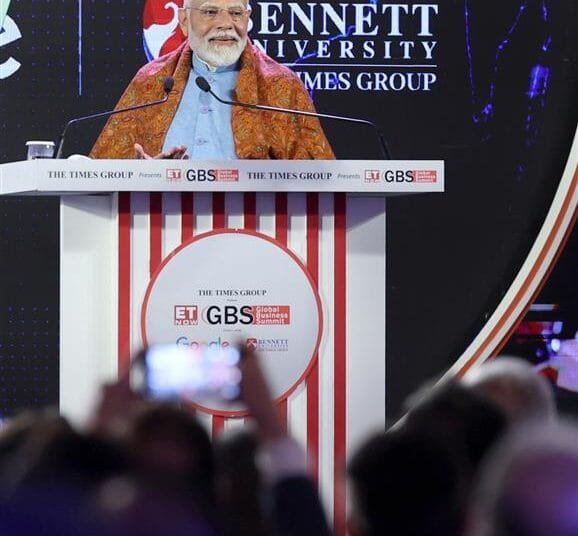DHL will add a new Free Trade Warehousing Zone (FTWZ) in North India next year and participate in the rail-based transportation.
The company has identified two locations for the FWTZ, the final choice of which will be based on customers’ feedback, said Samar Nath, Chief Executive Officer, DHL Global Forwarding India.
DHL expects to invest between Euro 5 million and Euro 15 million in the zone, which will be its third in the country. It started the first FTWZ in Chennai five years ago and has established a second in Mumbai after that. Both facilities are also being expanded. DHL is the first and only global logistics company in India to operate two FTWZ facilities in the country – a unique situation for India.
The North Indian FTWZ will be for time- and temperature-sensitive products from life sciences and pharmaceutical industries, hardwares of Oil & Gas and aviation sectors as well as luxury products among others.
The Indian SME markets have catapulted to the top of DHL Global Forwarding’s (DGF) “Must Grow” list, said Nath.
Nath pointed out that India’s smaller cities have delivered robust economic growth over the last 15 years, comparable with India’s largest cities, despite very small inflows of public investment. The smaller cities will contribute 49 per cent of the urban Gross Domestic Product (GDP).
Middle-class demand
The country’s budding middle-class bursting with cash is demanding higher value products, be they Gucci handbags or state-of-the-art medication. Customers seeking logistics solutions are increasingly interested in value- added services.
“One of the questions we often hear from Indian companies is what best-in-class solutions DHL has already implemented for their industry peers in mature markets,” Nath pointed out.
In mid-2014, DGF had identified Ludhiana, Jalandhar, Rudhrapur, Kanpur (North India), Surat, Gandhidham, Nagpur, Aurangabad (West India) Madurai, Mysore, Karur, Ranipet, Mangalore, Pondicherry, Guntur and Vizag (South India) as the focus markets which will fuel growth from 2015 onwards for the company.
“DGF has ensured we have a direct presence in all the SME stations which have been identified after a lot of research,” he stressed.
To effectively service this enormous expanse, the DHL network is having its own sales force, well equipped to tap into the local market thereby ensuring a successful penetration into all three sales channels of Business Customers, Verticals – Key Accounts and Trade Lane.
Apart from the customer industry specific vertical approach, the strategy is nurturing the business opportunities in Tier II, III cities which has strong economic propositions linked to an anchor sector mainly in Manufacturing, Transportation etc., thereby ensuring this SME market expansion program is backed by world class service.
IP Relocation
An increasing number of IPs are also being moved to India covering power and energy sectors as well as other industrial plants.
“There is a new momentum – a lot of European and American companies are relocating to India to take advantage of the incentives being offered by the Indian government,” he said.
“There is dismantling of overseas plants and setting up manufacturing bases in India,” noted Nath.
These relocated facilities would boost Indian export volumes to the Asian and African markets.
Elaborating on his market readings, Nath cited a recent announcement by Ford Motors to exports cars from its plant in India to the American market.
“That is an interesting turn of events that you see in the country,” he said, pointing to industrial development supported by the government under its “Make In India” initiative.
This would mean Indian exports expanding from the traditional Asian and African markets to the United States.
“In India, we are talking about 100 Smart Cities – we see a lot of equipment to be flown into the country for these developments and different business units of DHL will be actively involved in various aspects of the whole spectrum of developing smart cities,” he stressed.
DHL is also relocating IPs owned by major Indian manufacturers to Africa as part of global expansions and participation in the development of emerging economies.
Railways
“We look at India as a large geography and a large hinterland – we are trying to connect transportation of large plants coming into the country and exports from SMEs through various destinations of loading, unloading and storage to shipments at ports,” said Nath.
“DHL will add rakes (bare coaches) on the rail network through collaboration with licensed private cargo operators allowed under the privatized cargo segment,” Nath disclosed.
The rakes will be designed to handled 90 containers of 20-foot each and 45 containers of 40-foot each.
Nath welcomed the Goods and Services Tax (GST) to be implemented from April 2016 in the country. This would replace the current cumbersome process of paying toll-tax at every state-border.
“The GST system will eliminate the need to stop at every state border point to pay the current level of taxes,” he said, hoping the new tax collection system will help de-congest the roads.
Overall, DHL will be involved in every segment of transportation of goods, IPs and products. “This puts us in a very unique position that we can play in each of the segments”.
fii-news.com










